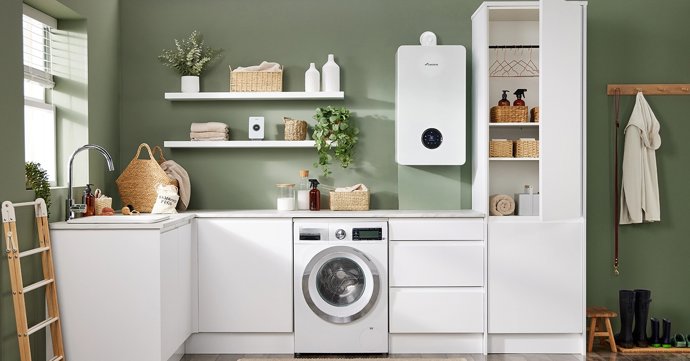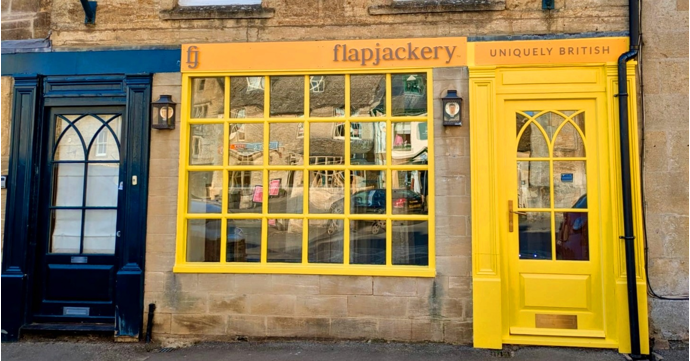In the midst of a Gloucestershire winter, you may be feeling you're spending more than you'd like on heating your home — and maybe it still doesn't feel warm enough.
SoGlos looks at nine things households can do to save money while keeping the home and its inhabitants warm, from insulating your system to getting to grips with your controls.
Manage your flow temperature
If you have central heating, checking — and if possible, reducing — the flow temperature from your boiler to your radiators can help to keep your heating costs down.
For conventional boilers, you can try turning your flow temperature down to 65 degrees — but no lower, or your boiler won’t be able to heat your hot water cylinder to a safe temperature.
If you have a combi boiler — without a separate hot water tank — you can adjust your radiator flow temperature without affecting your hot water. The UK's leading boiler brand Worcester Bosch says the goal is to set a temperature that will comfortably heat your home in an acceptable time frame, with the Energy Saving Trust suggesting that a temperature of 60 degrees is reasonable.
Insulate your system
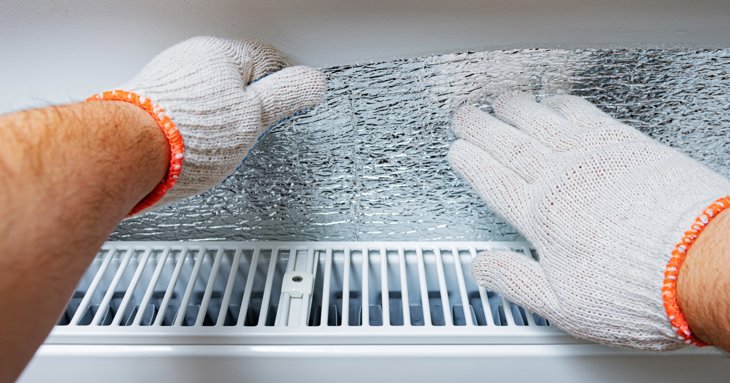
Properly insulating your hot water cylinder, pipes and radiators is key to ensuring your heating system is working efficiently.
Upgrading from spray foam or a loose jacket on your home's cylinder to a newer 80mm jacket — costing around £18 — could save you around £40 a year, according to the Energy Saving Trust.
Another low cost option is fitting reflector panels behind your radiators on external walls, to reflect their heat back into the room; as well as insulating your heating pipes with polythene foam or rockwool.
Bleed your radiators
If it seems your radiators have cold areas across the top when they're turned on, or they're not heating up at all, it's likely that they need bleeding.
Air can accumulate in your heating system over time, becoming trapped inside your radiators and stopping hot water from circulating.
This means you could be using more energy to heat your home than is necessary — bleeding your radiators will release the trapped air and get your system working efficiently again.
Upgrade your boiler — or pair with a heat pump
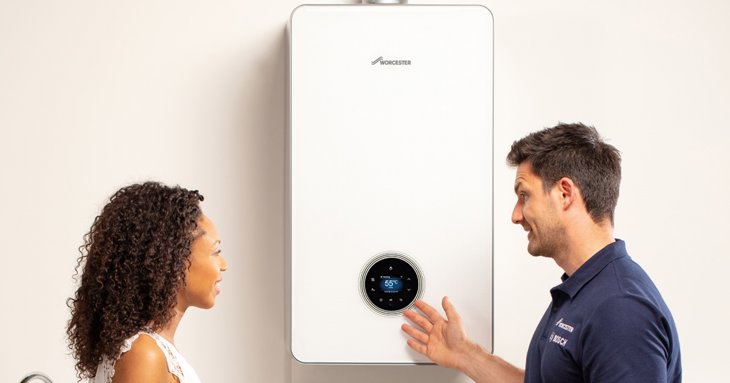
One of the most effective ways to save money on heating your home is to upgrade your standard G rated boiler to a newer model. Modern A rated boilers are at least 90 per cent efficient, meaning only 10 per cent of energy is lost or wasted, while older G rated boilers can be as low as 70 per cent efficient, with up to 30 per cent being wasted.
Though upgrading costs an average of £3,700 in the UK, the Energy Saving Trust estimates that switching to A rated could save you up to £490 a year if you live in a detached house, or up to £320 for a semi-detached property.
You could also consider pairing your boiler with a hybrid heat pump — significantly more efficient and better for the environment than traditional boilers and as they use no oil or gas, you could also see a reduction in your heating bills in the long run.
Master your heating controls
Learning how to manage your home's heating controls — including thermostats, timers and individual radiator valves — will give you a real handle on how much energy you're using.
Set a reasonable room thermostat temperature to stop your central heating using more energy than is needed, with the Energy Saving Trust saying that turning the temperature down by one degree — to a recommended 18 to 21 degrees — can save you up to £90 a year.
You can also set your central heating timer to come on half an hour before you get up and turn off half an hour before you go to bed; and using individual radiator valves can also help you control how much energy is being used to heat each room.
Get smart to save
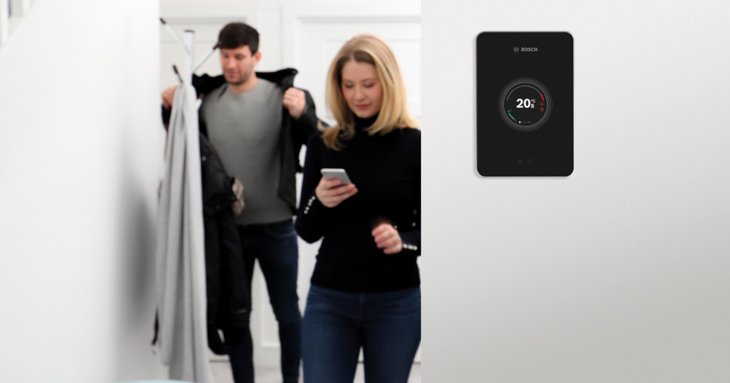
To go a step further with your heating controls, if your system is state-of-the-art, you can manage your boiler settings and even individual radiators with smart controls from an app on your phone.
Worcester Bosch provides an 'EasyControl' smart thermostat that makes it easier to keep tabs of your controls for each room, with easy-to-understand graphs displaying the efficiency of your programmes and enabling you to make changes via an app, in tandem with a wall-mounted controller.
You can also control your heating remotely by connecting to the internet — ensuring you're not needlessly heating an empty house — while the thermostat will automatically turn the heating down if you're no longer at home and also detects when you're returning, heating each room to your desired temperature.
Utilise your curtains and blinds
Heating your home efficiently doesn't have to break the bank — with something as simple as using your curtains and blinds in the right ways giving your heating system the best chance of warming your home at the lowest possible cost to you.
Closing your curtains or blinds at night can help keep the heat in; while Citizens Advice suggests another handy tip — tucking your closed curtains behind any radiators below to stop heat from escaping.
And if it's a sunny day, opening your curtains and blinds will allow the sun to warm your home — even if its a cold day.
Cover the cracks
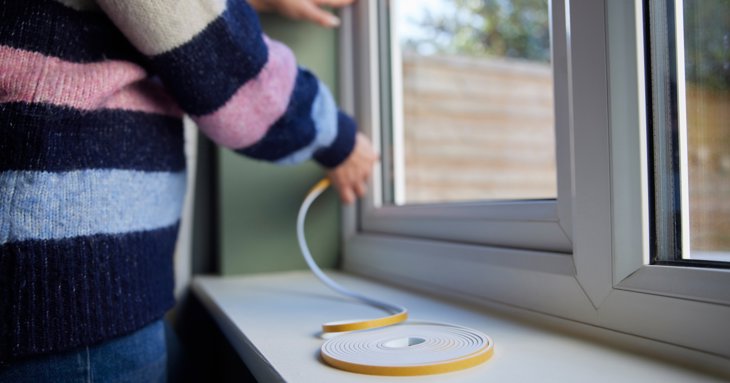
You can also give your heating system a helping hand by covering the cracks around your openings to prevent heat from escaping.
Draughts can come from gaps around your doors and windows; cracks in your floors and skirting boards; open chimneys; and even small openings like letterboxes and keyholes.
The Energy Saving Trust says draught proofing could help to save as much as £80 annually, with professional options including things like installing compression seals and brush strips around doors and windows; using gunned silicon sealant to plug gaps in floors and skirting boards; and fitting a draught excluder to your chimney.
Explore grants for home heating improvements
While upgrading your boiler or insulation will save you money in the long run, it may be that you're unable to cover all of the costs in the short term.
You may find that you're eligible for grant funding from the government to make improvements, through initiatives including the Energy Company Obligation (ECO) scheme or the Boiler Upgrade Scheme.
Information on available funding for home heating improvements can be found through Citizens Advice or the UK government website.




